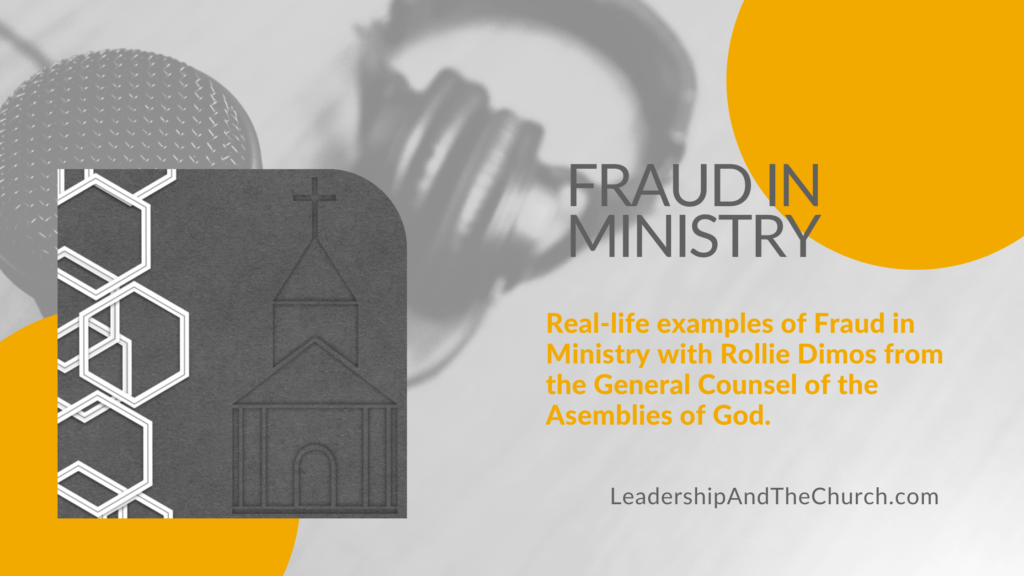Chris Miller, President of Miller Management, is the host of this week’s episode. He is joined by his colleague, Rollie Dimos, Internal Auditor at the General Counsel at the Assemblies of God.

This month, we will be discussing why fraud is an issue, share some examples, and detail ways to prevent fraud and what to do if you suspect fraud in your ministry. This series is not just for the financial people in church, Pastors and other leaders in the church need to hear about steps you can take, too.
Listen to the episode for more details, how much was stoles, and the jail time that was given for these individuals.
Stories of Fraud
Example One:
Fraudster: bookkeeper was writing checks to herself. Multiple checks over multiples years.
How to avoid: the church that isn’t looking at their bank statements or transactions logs on a regular basis, can get the wool pulled over their eyes.
Example Two:
Fraudster: the person with access to the controls set in place were able to turn off controls.
How to avoid: check up on the controls and accountabilities you put in place. And make sure your reports are readable to the person looking at the reports. Ask questions at board meetings.
Example Three:
Fraudster: started small and worked their way up to more and more, at three different churches.
How to avoid: their was no accountability for this individual. And perhaps no checking up on job history.
Example Four:
Fraudster: individual stole from one church to pay for his debt at another church.
How to avoid: run a background check on all employees. There was a record of their first fraud.
Example Five:
Fraudster: pastor ran extra payroll, falsefied reimbursement receipts, and used company credit card for personal expenses.
How to avoid: when at all possible, don’t have the pastor also doing the bookkeeping. And no matter who is doing the bookkeeping, have some accountability in place.
Example Six:
Fraudster: church admin and worship leader (family members collaborating together) set up a bank account with same acronym as school associated and put tutition payments in their own bank account.
How to avoid: people related to one another should not have access to the financial information at the same time. there needs to be 3 un-related people (on a rotating schedule) handeling money at all times.
Example Seven:
Fraudster: business administrator over 17 years was able to transfer to his personal bank account.
How to avoid: their was no accountability for this individual. They did all the financial related things, for over a decade without a check-in.
Example Eight:
Fraudster: took cash out of the offering plate every other week, from the one individual who gave cash every other week.
How to avoid: their was a giving statement given to the individual who gave, but the contributions weren’t checked against the financials, and no one noticed.
Coming Up
Not only is money lost, but also relationships and ministries are hurt. Sometimes the church even has to close because of the negligence of setting up good controls. Join us next week as we continue the conversation.
If you suspect there might be fraud in your ministry, don’t wait. Reach out to a fraud examiner at Miller Management at 816-382-3050 or GoodFaithAccounting.com.
Join the conversation, see behind the scenes, and learn more on our Instagram and X pages.
Special thanks to our guest, Rollie Dimos, and our masters of all things Podcasting, Chris and Lauren Miller, for this second episode in our Fraud in Ministry series.
